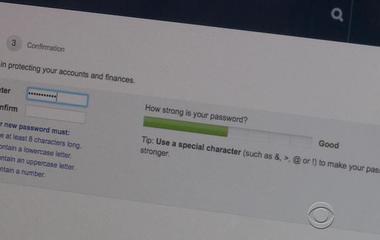via: cbsnews.com
Imagine you’re a scam artist looking for a vulnerable group to prey on.
Older people are often good marks, but they’re dispersed throughout the population, so finding a group to victimize can prove problematic. The very young are often protected by parents and may not have enough money to make them worthwhile targets. But college students? Perfect.
College students are old enough to have money, young enough to be vulnerable and likely to be unsupervised and away from home for the first time. Added bonus: because they congregate by the thousands on campuses nationwide, they’re not hard to find.
Now that you’ve gotten inside the head of those who might be preying on you or someone you love, take a few minutes to study some common college scams.
1. Tuition scam
Someone calls claiming to be with your school’s administration or admissions. They warn that your tuition is late and as a result, you’ll be dropped from your classes today. You’re ordered to pay immediately, over the phone, with a credit or prepaid card.
Solution: If you get a call involving money from anyone regarding anything, get off the phone and call the office that was mentioned yourself. Simply explain to whoever is calling that you’ll be calling them back, then check the status of whatever seems to be the problem.
This scam is a variation of the old unpaid bill scam, in which someone gets a call warning of dire consequences if they don’t immediately send money. In another common iteration, it’s a fake IRS agent warning of jail time.

Beware this latest phone scam
2. Bad behavior
College students are legendary when it comes to finding ways to get into trouble or compromising positions. But now everyone has a smartphone, and therefore a camera. So, everything can, and will, be photographed and/or captured on video. And, yes, there are people who will pretend to like you but are actually setting you up for blackmail.
One only has to recall the Ashley Madison hack of 2015 to imagine what can happen when extremely personal information falls into the wrong hands.
Solution: If you’re going to do anything at college you wouldn’t do in front of your parents or a prospective employer, think twice. If you’re around people you don’t know, and/or you have been drinking, think 10 or 20 times.
3. Fake credit cards … and real ones
The Credit Card Accountability, Responsibility, and Disclosure (CARD) Act of 2009 banned banks from heavy credit card marketing on campus, but that doesn’t mean banks and card companies don’t still actively pursue college students.
Credit cards and other accounts that are heavily solicited are the ones most likely to be loaded with bad terms, big fees and high interest rates. Even worse, some credit card solicitations might be disguising an identity thief. Tread carefully.
Solution: If you need a credit card, don’t respond to one that solicits you. Instead, do your own hunt for the best card. The best deals in many areas of life, including credit cards, are often the least advertised, so look around online (we have a credit card search here) and at local banks and credit unions. Compare fees, terms and conditions, then make an informed decision.
4. Passwords
Everyone knows not to use the same simple or easy-to-guess passwords on multiple sites, or at least everyone should know. So why do we continue to risk our digital lives by using them anyway? Don’t store passwords or other sensitive information on your phone, or laptop, or anything else that can be easily stolen.
Solution: Forget changing passwords often or creating words with special characters — experts now say that advice doesn’t make passwords any harder for a bot to crack. Instead, try to make your password a long series of unrelated words. Also consider using any number of free programs to create, track and change your passwords. You just remember one password, your password manager does the rest.

Man who suggested random, ever-changing passwords regrets that guidance
5. Advance fees
If someone wants to charge you a fat fee in exchange for a loan, job, scholarship, debt counseling, completing a FAFSA (Free Application for Federal Student Aid) or almost anything else, it’s likely either a scam or someone charging too much for doing something you can do yourself.
Solution: Whatever the situation, the higher the fee, the more suspicious you should be. When it comes to scholarship and financial aid scams, the Federal Trade Commission offers these red flags to watch for:
- “The scholarship is guaranteed or your money back.”
- “You can’t get this information anywhere else.”
- “I just need your credit card or bank account number to hold this scholarship.”
- “We’ll do all the work. You just pay a processing fee.”
- “The scholarship will cost some money.”
- “You’ve been selected” by a “national foundation” to receive a scholarship — or “you’re a finalist” in a contest you never entered.
6. Online books
Crooks know textbooks are a huge college expense. So they set up a site, offer great deals, collect your money, then deliver nothing.
Solution: Don’t ever buy books, or anything else, online without first checking out reviews and otherwise validating the site and/or seller. Are they listed with the Better Business Bureau (BBB)? Do they have a physical address and phone number? Do you know anyone who’s used them before?
7. Nonexistent apartments
This scam is simple: Someone offers a great apartment, collects rent and/or a deposit over the phone or online for a place they don’t own, then disappears.
Solution: Don’t ever agree to rent an apartment without seeing it, both inside and out, and meeting the landlord. And don’t hand over money until you’re standing in your new apartment, key in hand.

Number of impostor scams surpass identity thefts
8. Check cashing
In this scam, a “friend” asks you to cash a check for them. Maybe they even let you keep a little bit of the money for your trouble. You take their check and give them cash. Shortly after you deposit the check, it bounces. They’re long gone, and you’re out the money, as well as a returned check fee.
Solution: If you don’t know someone very well, consider cashing a check for them a gift of money from you, because it’s likely that’s what it will turn out to be.
9. Risks on Wi-Fi
Few groups are more likely than college students to spend time online via Wi-Fi at places like coffee shops, restaurants and parks. Unfortunately, public Wi-Fi subjects you to all manner of potential foul play.
Solution: Slow down hackers and ID thieves by using password protection and encryption software. Still, don’t ever log on to banking or other sensitive sites when on public Wi-Fi. And it’s not just your laptop that’s at risk. Do you have the same protections on your smartphone?
Bottom line: Remember the three golden rules of scam avoidance
While many scams, both on-campus and off, have donned high-tech clothing in recent years, most can be avoided by remembering three old-fashioned rules:
- If something seems too good to be true, it probably is.
- Don’t part with personal information unless you’re sure where it’s going.
- The more someone needs money upfront, the greater the likelihood you’re about to be robbed.
Source: https://www.cbsnews.com/news/9-scams-every-college-student-and-parent-needs-to-watch-for/
